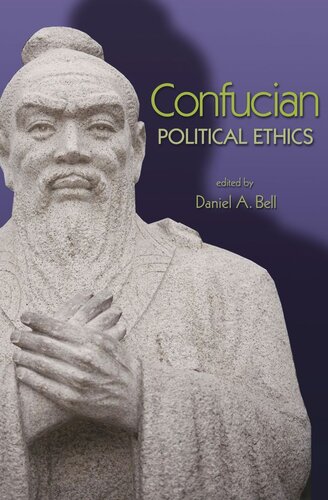

Most ebook files are in PDF format, so you can easily read them using various software such as Foxit Reader or directly on the Google Chrome browser.
Some ebook files are released by publishers in other formats such as .awz, .mobi, .epub, .fb2, etc. You may need to install specific software to read these formats on mobile/PC, such as Calibre.
Please read the tutorial at this link: https://ebookbell.com/faq
We offer FREE conversion to the popular formats you request; however, this may take some time. Therefore, right after payment, please email us, and we will try to provide the service as quickly as possible.
For some exceptional file formats or broken links (if any), please refrain from opening any disputes. Instead, email us first, and we will try to assist within a maximum of 6 hours.
EbookBell Team

0.0
0 reviewsFor much of the twentieth century, Confucianism was condemned by Westerners and East Asians alike as antithetical to modernity. Internationally renowned philosophers, historians, and social scientists argue otherwise in Confucian Political Ethics. They show how classical Confucian theory--with its emphasis on family ties, self-improvement, education, and the social good--is highly relevant to the most pressing dilemmas confronting us today.
Drawing upon in-depth, cross-cultural dialogues, the contributors delve into the relationship of Confucian political ethics to contemporary social issues, exploring Confucian perspectives on civil society, government, territorial boundaries and boundaries of the human body and body politic, and ethical pluralism. They examine how Confucianism, often dismissed as backwardly patriarchal, can in fact find common ground with a range of contemporary feminist values and need not hinder gender equality. And they show how Confucian theories about war and peace were formulated in a context not so different from today's international system, and how they can help us achieve a more peaceful global community. This thought-provoking volume affirms the enduring relevance of Confucian moral and political thinking, and will stimulate important debate among policymakers, researchers, and students of politics, philosophy, applied ethics, and East Asian studies.
The contributors are Daniel A. Bell, Joseph Chan, Sin Yee Chan, Chenyang Li, Richard Madsen, Ni Lexiong, Peter Nosco, Michael Nylan, Henry Rosemont, Jr., and Lee H. Yearley.